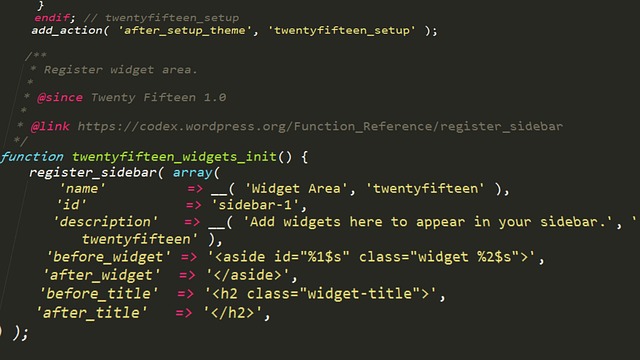Use your own words to create clear and informative introduction.
Have you ever stopped to wonder why React components use PascalCase for filenames? What does the choice of case say about React naming conventions? Or, what’s the real-world value of using PascalCase for filenames?
It is becoming increasingly apparent that consistently applying naming conventions to React components is essential for successful development. This is because a standardized and consistent approach, such as using PascalCase, can reduce the number of errors and provide a better user experience. Additionally, a large amount of time and energy can be saved if a React application’s codebase is easy to navigate.
In this article You will learn the importance of using specific naming conventions in React components, such as PascalCase, and how it can help with development. We will discuss the advantages of applying consistent naming conventions, the principles of React naming, and the specific ways PascalCase can be used to improve workflow. Finally, we will look into how teams can use the best practices to ensure the most productive and least error-prone development.
In conclusion, following a well-defined React component-naming convention, such as PascalCase, will enable developers to build better applications while saving time and energy. We will look more in depth on how React component-naming conventions are beneficial and which practices should be avoided.
Definitions:
React is a powerful JavaScript library which allows developers to create reusable and interactive user interfaces. React components are JavaScript files which contain code allowing developers to create a single distinct piece of a larger application. These components use a file naming convention known as PascalCase in which every letter is capitalized and no spaces or separators are used.
It is important to note that even though this naming convention is used in React, it is not exclusive to the library. It is actually a broadly used standard for all programming languages, existing long before React was created. When developing React applications it is crucial to adhere to this convention because it will ensure consistency across the entire codebase.
The most important department of the PascalCase convention is that it reduces ambiguity and makes it easier for developers to locate and employ specific React components. Since all of the characters of the component filename are capitalized, it is easy for developers to identify any potential issues in their code by simply looking at the component names.
Overall, the PascalCase file naming convention is essential when using React components as it helps to ensure that the code remains consistent and maintainable. Furthermore, by following this convention it is possible for developers to easily identify and locate components within their codebase. This makes the development of React applications much more efficient.
The Significance of Using PascalCase for React Component Filenames
The Significance of Using PascalCase for React Component Filenames
React is one of the widely used JavaScript library for developing user interfaces and web applications. It is used to build high-performing web applications and mobile apps with a clean and robust codebase. Naming conventions play an important role in software development. React developers often use the PascalCase convention for their component filenames, as it helps the developer maintain a structured and organized codebase.
The Benefits of Using PascalCase for React Component Filenames
Using PascalCase for React component filenames is beneficial in a variety of ways. Firstly, it helps easily identify one file among a pile of files, thus reducing the chance of errors.Secondly, PascalCase names are easier to read, especially when multiple components are used in a single project. Furthermore, since React is a component-based library, using PascalCase allows for components to be quickly located, such as when a project needs refactoring. Lastly, it helps reduce naming collisions and ambiguities.
How to Implement PascalCase into React Component Filenames
Implementing PascalCase into React component filenames can be easily done by following a few simple steps. Firstly, the React component should be named by its role in the component tree. For example, if the component identifies, a user profile, it should be named ‘UserProfile’. Additionally, the words should begin with a capital letter, even if they are more than one. Finally, the file itself should be named exactly the same as the React component itself.
The Advantages of Using PascalCase for React Component Filenames
Some advantages to using PascalCase for React component filenames include:
- It helps one quickly identify the file they are looking for among a pile of similar files.
- PascalCase names are easier to read which is helpful when incorporating multiple components into the same project.
- Since React is a component-based library, using PascalCase helps one locate components when a project needs refactoring.
- It reduces the chance of naming collisions and ambiguities.
Overall, using PascalCase for React component filenames is important. It helps reduce errors and ambiguities and allows for easier maintenance of the code. It can also be easily implemented by simply following a few simple steps. Ultimately, recognizing and applying this convention allows developers to create a clean and robust codebase, thus ensuring long-term performance of the project.
Understanding PascalCase
PascalCase is a popular naming convention used when creating files for React components. By following the PascalCase convention, developers can easily distinguish React components from other elements, such as HTML or style sheets, which would typically use the camelCase convention. The main benefit of PascalCase is its adherence to the principles of semantic syntax, which helps developers keep their code organized and easier to read.
Advantages of Using PascalCase for React Components
Readability
Using PascalCase makes components easier to read, as it clearly delineates words within a name and ensures that developer syntax remains consistent. For instance, the component “userForm” would become “UserForm” with PascalCase, making it easier to parse. Furthermore, because the PascalCase syntax adheres to JavaScript and React conventions, this can help developers, especially those who are new to coding, become more familiar with best practices.
Optimized Debugging and Troubleshooting
PascalCase also aids in the debugging and troubleshooting of code. With consistent syntax, it’s much easier to locate problem areas within a component. Additionally, the use of the PascalCase syntax allows developers to use a consistent system of naming, which can help reduce errors and offer more legible code.
In summary, PascalCase is a widely used and recognized naming convention that is preferred for React components. When compared to other syntax options, such as camelCase, PascalCase provides the greatest benefits in terms of readability, consistency, and troubleshooting. The deliberate separation of words within PascalCase makes it much easier to identify and modify elements within React components, which helps to ensure that a project will be successful and maintainable.
Advantages of Using PascalCase for React Component Filenames
PascalCase is a type of naming convention that is used widely in programming, but specially in React. The idea behind this convention is to make it easier for developers to determine which words represent objects, classes, functions, and variables, as opposed to regular text strings. This convention consists of writing words without spaces but with capitalised letters, and following most of the same rules as you would when writing a conventional sentence – a capital letter at the beginning of each word, and each word having its own meaning.
The advantages of using PascalCase for React components’ filenames are numerous. Firstly, it is easier for developers to understand when browsing the file tree. As PascalCase names are always clear and concise, it is often easier to find the right component at first glance rather than having to read through several components’ filenames to find the right one.
Secondly, since PascalCase names are consistent across all components, it makes it easier for developers to switch between components without having to constantly remember the spelling of each name. This consistency also makes it much easier for them to grab objects and elements directly, instead of having to manually type out their filenames.
Lastly, it makes the code easier to read and understand; because React components have descriptive names, it is possible for developers to read and understand what a component does from its file name. This helps to create more understandable and maintainable code, which is always a win.
PascalCase is an efficient and useful naming convention for React components that help make the development process faster and easier, as well as leading to more readable and maintainable code. It is also very easy for developers to adjust and learn, as the names are always very clear and self-explanatory. For these reasons, it is highly recommended for React developers.
Conclusion
Thought-provoking question on topic: What role do file names play in React component design?
Naming React components is an integral part of component development, and file names play an important role in that process. The use of PascalCase for files can have positive implications for both the developer and the end user. By utilizing this format, developers can ensure that their code is organized and maintainable, while also providing a user-friendly experience for their end-users.
For those interested in learning more about this topic of React component design and file naming, be sure to subscribe to our blog and stay tuned for new releases.
To further explain the importance of using PascalCase for React components, here are some frequently asked questions:
What is the advantage of using PascalCase? In short, the use of PascalCase allows for developers to clearly identify and distinguish component files from each other. A properly formatted file name will also make coding more efficient, as developers can quickly and accurately reference code.
Who benefits from using PascalCase? Anyone who works with React components stands to benefit from the use of this file naming format. This includes developers, of course, but it also extends to end-users. Having a recognizable and easily identifiable file name allows for improved understanding and collaboration, which, in the end, can help everyone to get the best possible results from a project.
Are there any drawbacks to using PascalCase? Overall, PascalCase presents few drawbacks for users. That being said, like with any other coding practice, it is important to be consistent with the use of file names in order to avoid naming conflicts and confusion.
What other types of files work well with this naming format? PascalCase is most often recognized as being connected to React components, but it can be used with any type of coding file. The extension of the file (i.e. .css, .html, .js, etc.) will ultimately determine the file-name format that is appropriate for that particular file.
Should I always use PascalCase in file names? The short answer is yes; however, there may be certain cases where the use of a different format is more appropriate or desirable. It could also be situationally dependent (i.e. the team or organization may decide to use a different file naming format due to their own specific guidelines). Ultimately, it is important to use the file naming format which most accurately supports the code, as well as the team’s individual style.




